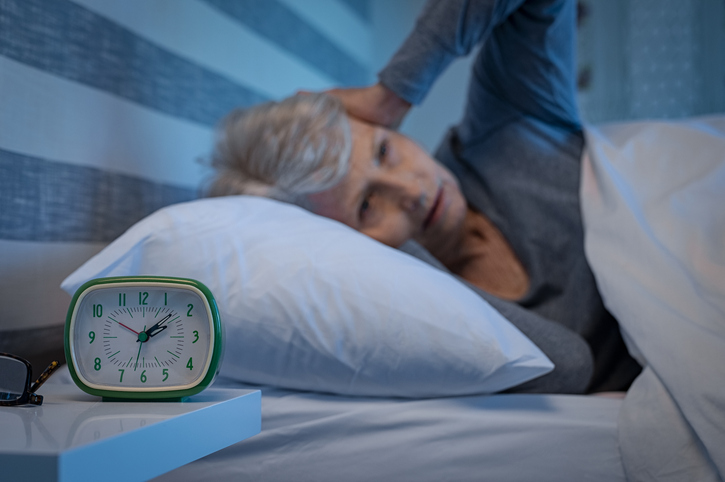
Discover tips for a more restful night’s sleep for seniors here.
Tossing and turning. Counting sheep. Staring at the clock. If this portrays a regular evening for your elderly loved one, understand that he or she is in good company. While older adults need between seven and nine hours of sleep each night, as many as 50 percent of all adults over age 65 report challenges with falling and/or staying asleep. Yet it’s significant to be aware that although senior sleep problems may be frequent, they are not a normal part of getting older – and there are measures that can be taken to improve sleep for your older loved ones.
First, it’s very important to rule out a clinical sleep disorder, which could include effects noted regularly such as:
- Challenges with falling asleep even when tired
- Struggles with falling back to sleep once awakened
- Drowsiness or irritation during waking hours
- Concentration or focus issues, or falling asleep when sitting still (such as when watching TV or riding in a car)
- Unmanageable emotions
- Reliance on alcohol or sleeping pills to get necessary sleep
The doctor must be consulted if a sleep disorder is suspected. For many seniors, however, there’s an underlying trigger behind the insomnia. A few of the common causes of senior sleep difficulties are detailed below, together with strategies to help:
- An environment that’s not conducive to rest. Ensure the bedroom is dark, quiet, and cool. Take out the television set and any electronic devices from the bedroom, and adhere to a regular sleep routine that includes soothing music, a warm bath, reading, or any other calming activities, in addition to a fixed time to go to bed every evening.
- Medicine side effects. Review any drugs your senior loved one is taking – both prescription and over-the-counter – to see whether sleep disruptions might develop, and then talk with the senior’s physician about whether any medication changes are recommended.
- A sedentary lifestyle. Being as active as possible over the day can go a long way towards a better night’s sleep. Encourage your senior loved one to sign up for an exercise class, go for a walk each afternoon, or join a local swim club and make an effort to swim each day (all with the doctor’s approval).
- Chronic disease complications. Diseases such as Alzheimer’s, diabetes, arthritis, and more can lead to senior sleep disruptions. Consult with the senior’s doctor for suggestions.
- Post-menopause. It’s common knowledge that the hot flashes often encountered in the course of menopause can hinder sleep, but hormone-related sleep disturbances can continue well beyond menopause too. The lifestyle adjustments outlined above could help.
Grace Home Care can help with senior sleep problems in a variety of ways to improve senior living through services in home health care in Topeka, KS and surrounding areas. Contact us at 785-286-2273 to request a free in-home assessment to learn more! And visit our Service Area page to find out if our customized home care services for seniors are available in your area.
